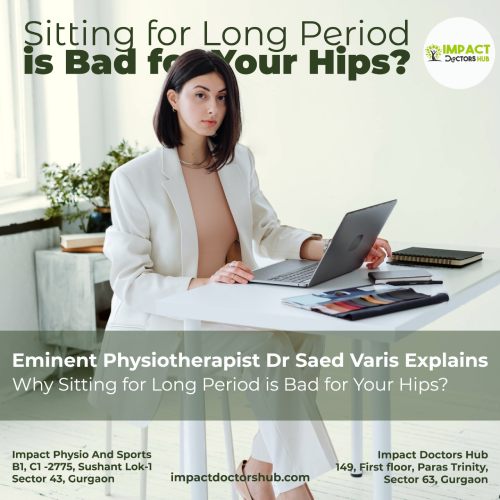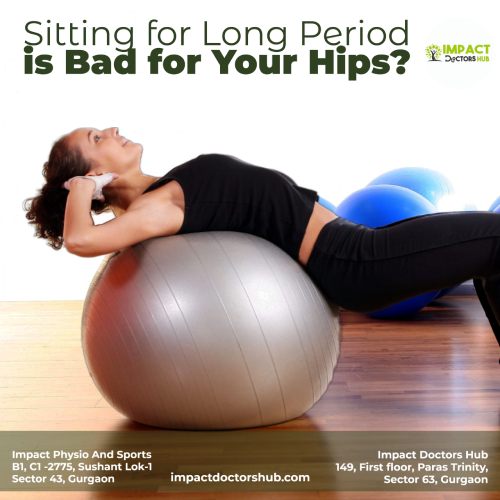
Explains Leading Physiotherapist for Hip Pain in Gurgaon Dr. Saed Varis
As a physiotherapist, we often come across individuals who spend long hours sitting, whether it is due to desk jobs, commuting, or leisure activities. While sitting may seem harmless, it can have significant consequences for our hips and overall well-being. In this article, Dr Saed Varis the top physiotherapist for hip pain in Gurgaon shed light on why sitting for extended periods is bad for your hips and provide some practical tips to help you maintain healthy hip function in your daily life.
Sitting for long periods can have adverse effects on your hips for several reasons opines Dr Saed Varis. Here are some of the effects.
Muscle Imbalances
When you sit for extended periods, the hip flexor muscles at the front of your hips remain in a shortened position, while the hip extensor muscles, such as the glutes and hamstrings, become inactive. This imbalance can lead to tight hip flexors and weak hip extensors, disrupting the natural alignment and stability of your hips.
Hip Joint Stiffness
Prolonged sitting can cause the hip joint to become stiff and lose its full range of motion. The lack of movement and continuous compression on the joint can result in decreased lubrication and restricted mobility, making it harder for you to perform daily activities that require hip flexibility.
Reduced Blood Circulation
Sitting for long periods can impede proper blood circulation to the hip area. The static posture and lack of movement restrict blood flow, reducing the delivery of oxygen and nutrients to the hip muscles and joints. This can lead to muscle fatigue, and discomfort, and even contribute to the development of hip conditions.
Increased Risk of Hip Impingement
Sitting with poor postures, such as slouching or crossing your legs, can lead to a forward tilt of the pelvis and increased pressure on the front of the hip joint. Over time, this can contribute to hip impingement, a condition where the bones of the hip joint rub against each other, causing pain, inflammation, and limited mobility.
Hip Joint Degeneration
Prolonged sitting without regular movement and weight-bearing activity can accelerate hip joint degeneration. The lack of physical stress on the joint can contribute to the breakdown of cartilage, leading to conditions like osteoarthritis, which causes pain, stiffness, and reduced functionality in the hips.
Postural Problems
Sitting for long periods can negatively affect your overall posture, including your hip alignment. Slumping or sitting in a hunched position can disrupt the natural curvature of your spine and lead to pelvic misalignment. This can put additional strain on the hips and contribute to discomfort and pain.
To mitigate the negative impact of prolonged sitting on your hips, it is important to incorporate regular movement breaks, practice good posture, and engage in exercises that strengthen and stretch the hip muscles. Taking short walks, performing hip-opening stretches, and incorporating hip-strengthening exercises into your routine can help maintain hip flexibility, stability, and overall joint health. If your situation has worsened seek an appointment with Dr Saed Varis who is an eminent physiotherapist in Gurgaon and an expert physio for back pain.

